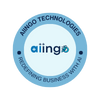
In today’s fast-paced digital world, marketing is undergoing a transformation, and at the heart of this evolution is Artificial Intelligence (AI). Gone are the days when marketing campaigns were solely reliant on human creativity and intuition. AI has revolutionized the way businesses reach their audience, personalize their messages, and optimize their strategies. In this blog, we will explore how AI simplifies marketing for everyone, making it more efficient, data-driven, and ultimately, more successful.
The Power of Data
Marketing has always been about understanding the audience and tailoring messages to resonate with them. While humans can analyze data to a certain extent, AI takes it to a whole new level. It can process and analyze vast amounts of data in real-time, uncovering patterns and insights that humans might overlook.
One of the key advantages of AI in marketing is its ability to collect and utilize customer data. By tracking online behavior, preferences, and purchase history, AI can create detailed customer profiles. This allows businesses to understand their audience on a granular level, enabling highly targeted marketing campaigns.
Imagine a scenario where an e-commerce website utilizes AI to analyze a customer’s past purchases and browsing history. Based on this data, the AI can recommend products that are not only relevant but also likely to appeal to the customer. This level of personalization increases the chances of making a sale significantly.
Enhanced Customer Engagement
Engagement is crucial in marketing. The more engaged your audience is, the higher the chances of conversion. AI-driven chatbots and virtual assistants have taken customer engagement to new heights. They can provide immediate responses to customer inquiries, offering 24/7 support without human intervention.
These chatbots are not just efficient; they can also simulate human conversation, making interactions feel more natural and personalized. As a result, customers are more likely to engage with a chatbot and have a positive experience.
Furthermore, AI can analyze social media and online interactions to gauge customer sentiment. This allows businesses to respond promptly to both positive and negative feedback, demonstrating that they value their customers’ opinions. Improved customer engagement leads to stronger brand loyalty and word-of-mouth marketing.
Predictive Analytics
One of the most significant advantages of AI in marketing is its predictive analytics capabilities. AI can analyze historical data to predict future trends, customer behavior, and market shifts. This information is invaluable when it comes to making informed marketing decisions.
For instance, AI can forecast which products are likely to be in demand in the upcoming holiday season based on historical sales data and emerging trends. This allows businesses to stock up on inventory, plan marketing campaigns, and optimize pricing strategies in advance.
Predictive analytics also play a crucial role in lead generation. AI can identify potential customers who are more likely to convert based on their online behavior. This enables businesses to prioritize their efforts and allocate resources more effectively.
Content Creation and Personalization
Creating engaging content has always been a cornerstone of marketing. With AI, this process has become more efficient and personalized. AI-powered content generators can analyze vast amounts of data to create content that resonates with the target audience.
For example, AI can analyze trending topics, customer preferences, and online discussions to generate blog posts, social media updates, or even video scripts. This not only saves time but also ensures that the content is relevant and appealing to the intended audience.
Moreover, AI can tailor content to individual users. Email marketing, for instance, can be highly personalized, with AI analyzing customer data to send tailored product recommendations or special offers. This level of personalization increases engagement and conversion rates.
Optimizing Ad Campaigns
AI also excels in optimizing advertising campaigns. It can continuously monitor and adjust advertising budgets, targeting parameters, and ad creatives to maximize ROI. This level of automation and optimization is nearly impossible for humans to achieve manually.
For example, AI can analyze the performance of different ad variations in real-time and allocate more budget to the ones that are generating the most conversions. It can also adjust targeting parameters to ensure that ads are shown to the most relevant audience.
This not only saves money but also ensures that marketing efforts are focused on what works best. Over time, AI can refine advertising strategies, making them more effective and cost-efficient.
Conclusion
In the ever-evolving world of marketing, AI has emerged as a game-changer. Its ability to process vast amounts of data, enhance customer engagement, provide predictive insights, personalize content, and optimize ad campaigns makes it an invaluable tool for businesses of all sizes.
While AI simplifies marketing, it’s important to remember that it doesn’t replace human creativity and strategy. Instead, it augments and enhances our capabilities, allowing us to make data-driven decisions and connect with our audience on a deeper level.
As AI continues to evolve, its role in marketing will only become more significant. Those who embrace this technology will have a competitive advantage, reaching their target audience more effectively and efficiently. So, if you want to sell stuff better than ever before, consider letting the robots help you out – they might just be the best salespeople you’ve ever had.
